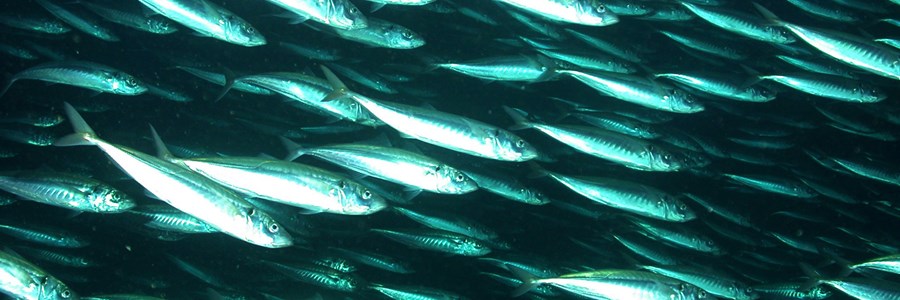EU fishing industry calls for highest priority to be given to all-party mackerel sharing arrangement and stresses that UK-Norway bilateral deal did not end inflated, unjustified unilateral quotas

With sharing arrangement consultations on the Northeast Atlantic pelagic stocks being resumed this month, the EU fishing industry calls on all Coastal States to give top priority to discussions on an all-party sharing arrangement for mackerel and to engage in these talks in earnest and in good faith. The bilateral mackerel deal for 2023 that the UK and Norway struck before summer does not contribute to a conducive environment for the conclusion of those consultations. In the meantime, Norway and the Faroe Islands have continued to operate on the basis of excessive, unjustified unilaterally set quotas, leading to further overfishing. Therefore, the EU industry once more strongly urges the European Commission and the Council of the EU to take concrete action against these practices and make use of the instruments at their disposal, such as select trade measures.
After the intensified but ultimately failed attempts to conclude negotiations on the allocation of Northeast Atlantic mackerel quotas before 31 March, parties decided to suspend talks for the time being and dedicate their time to other stocks. No formal meetings on mackerel are foreseen before the end of September.
Already in April, the EU industry foresaw the risk that some parties would continue to set excessive, unjustified unilateral quotas, which would lead to another year of catches exceeding the Total Allowable Catch that has been set in line with scientific advice. This is exactly what is happening, with Norway and Faroe Islands again having inflated their initial quotas by around 55% compared to levels commensurate with the most recent Coastal States mackerel sharing arrangement.
In order to attempt to catch and justify their unwarranted unilateral quota, the Faroe Islands has been fishing mackerel on the summer feeding grounds in the international zone, when the fish are in poor condition after the spawning migration. Up to 2/3 of the total Faroese (but also Icelandic) mackerel catches are estimated to have been turned into fishmeal and -oil. This was further facilitated by Norway, where much of this fish was landed with permission of the Faroese government between 26 July and 31 August. This is a wasteful practice that will have a long-lasting and damaging effect on the mackerel stock.
Tim Heddema, spokesperson for the EU pelagic fishing industry, says: “The unilaterally set Northeast Atlantic mackerel quotas by Norway and Faroe Islands, at unjustified levels and on the basis of a one-dimensional zonal attachment approach deemed highly flawed by scientists from all Coastal States, remain unacceptable and work against the efforts to pursue an all-inclusive agreement. We repeat our urgent call for an immediate EU response to stop Norway and Faroe Islands continuing their unsustainable and irresponsible behaviour, to prevent further overfishing of a stock that is one of the most important and valuable to the EU. The EU has stuck to the shares agreed in 2014, but right now responsible EU businesses are at risk of being put out of business for doing the right thing.”
The bilateral mackerel agreement for 2023 between the UK and Norway grants Norway access to UK waters to fish up to 60% of their TAC, on the condition that Norway reduces its unilateral TAC and pays in quota for access. Norway agreed to reduce their TAC to 31.95% from 35% and transfer 24,635 tonnes of mackerel to the UK. This deal will have no impact on the overfishing, unless the UK decides not to utilise the additional mackerel they received. Norway printed the currency themselves and then paid with it. Moreover, one could be forgiven for thinking that the UK has decided on a ‘landing zone’ for a permanent Norwegian share that is unrealistic and based on artificially increased track records.
Heddema adds: “For truly sustainable management of Northeast Atlantic mackerel a full-fledged sharing arrangement is needed between as many parties as possible, and respecting real track records. The bilateral UK-Norway agreement cannot replace or be enshrined in such a Coastal States agreement. The parties have all shown themselves capable of reaching bilateral, trilateral and multilateral deals, albeit to differing degrees of satisfaction. With the right atmosphere, this should again be possible when mackerel discussions resume in September and October. The EU industry stands ready to work towards a successful outcome with all those involved. In the meantime, excessive, unjustified unilaterally set mackerel quotas must be stopped.”
EAPO/Europêche press release on NEA mackerel sharing arrangement consultations (7/4/’23)
EAPO-NPWG position paper on fishing opportunities 2023 (11/10/’22)
EAPO/Europêche press release on 2022 NEA mackerel quotas Norway and Faroe Islands (23/6/’22)
EAPO-NPWG position paper on Coastal States mackerel distribution report and consultations (16/3/’22)
Contact: Tim Heddema, Chair of the EAPO Northern Pelagic Working Group and Europêche Vice-President
+31625045602 / theddema@pelagicfish.eu
Sources: Europêche, EAPO